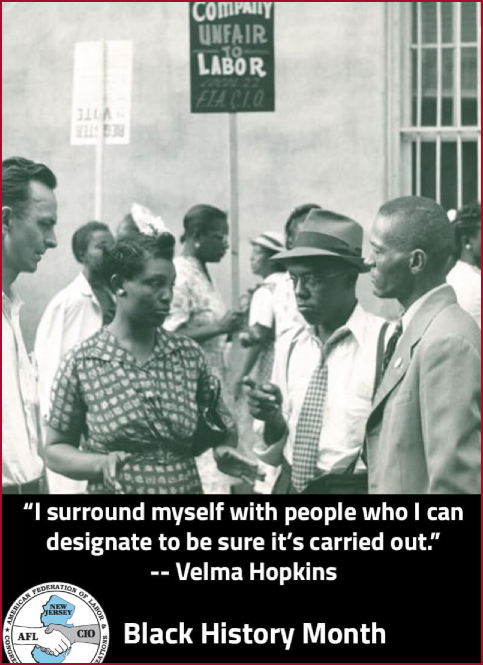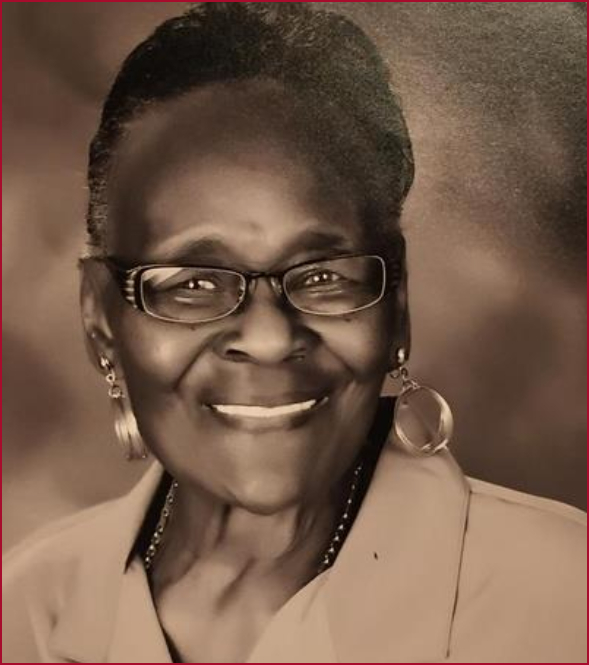Velma Hopkins (February 24, 1909 – March 19, 1996) was a fearless labor rights activist whose leadership helped reshape the labor movement in Winston-Salem, North Carolina.
She played a pivotal role in organizing a massive 1943 strike against the R. J. Reynolds Tobacco Company, rallying over 10,000 workers in the fight for fair wages and better conditions.
Her activism led to the formation of the only union ever established at Reynolds Tobacco and positioned her as a leader in the city’s Black community and beyond.
Born in 1909, Hopkins was the eldest of four children. After her father passed away, her mother moved the family to Winston-Salem, where Hopkins later found work as a tobacco stemmer at R. J. Reynolds Tobacco Company.
Like many Black workers, she faced low wages, poor working conditions, and segregated, hazardous workplaces filled with extreme heat and dangerous tobacco dust.
The breaking point came in 1943 when a coworker died under harsh conditions. Hopkins, refusing to stay silent, helped organize a walkout, sparking one of the largest strikes in the South.
City workers from various industries joined, forming a 10,000-strong picket line outside Reynolds headquarters. This led to the creation of Local 22 of the Food, Tobacco, Agricultural and Allied Workers of America-CIO—the first and only union at Reynolds Tobacco, notable for its racial integration and Black female leadership.
Shutting It Down for Justice

Hopkins was at the forefront of Local 22’s fight for pay raises, equal wages, and better working conditions. In 1944, she took decisive action by cutting power to all the machines at her plant, initiating another strike. The movement gained national attention, drawing support from cultural icons like Woody Guthrie and Paul Robeson.
Her advocacy gave Black workers the courage to stand up for their rights. She described how fear once kept workers silent:
“I’ve got to work. I’m head of a household. I’m feeding children. Even though you ain’t making but $9.35, that $9.35 meant survival. And once we got the union, they felt like, well, I’ve got some protection. I’ve got somebody that really cares.”
However, her activism came at a cost. She faced death threats, intimidation, and red-baiting from local media and Reynolds executives. Despite Local 22’s victories, an aggressive anti-union campaign led to its decertification in 1950.
A Legacy Beyond Labor Rights

Even after the fall of Local 22, Hopkins remained a key figure in Winston-Salem’s Black community. She worked tirelessly to help Black residents register to vote, fight school segregation, and push for broader civil rights reforms. Her labor activism helped shape the city’s Black middle class, paving the way for the civil rights movement.
North Carolina State Senator Earline Parmon, who was mentored by Hopkins, credited her as an instrumental figure in shaping a generation of Black leaders.
Though history often overlooks her, Velma Hopkins’ impact on labor rights, racial equality, and community activism is undeniable.
Her courage in standing up to one of the most powerful companies in the South continues to inspire movements for workers’ rights and racial justice today.
